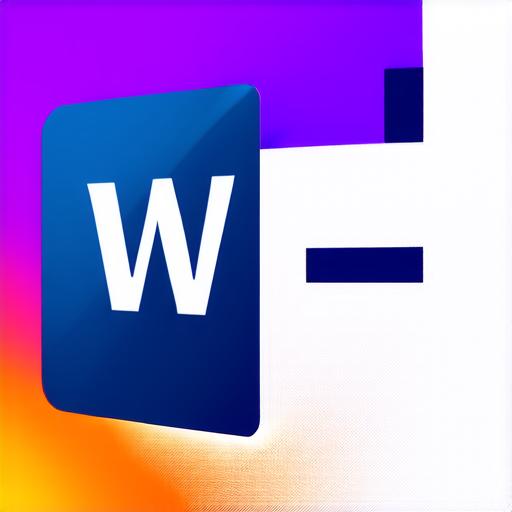Introduction:
As software developers, we are constantly searching for the best tools and technologies to help us create efficient, effective, and innovative applications. In this article, we will explore 20 different types of application software that are commonly used in development. We will look at each type of software, its features, benefits, and use cases. By the end of this article, you will have a better understanding of the various types of software available to you as a developer and how they can help you streamline your development process.
1. Integrated Development Environments (IDEs):
Integrated Development Environments (IDEs) are software applications that provide a comprehensive environment for software developers to write, compile, debug, and test their code. IDEs offer features such as syntax highlighting, code completion, and debugging tools, making them essential for efficient coding. Popular IDEs include Eclipse, Visual Studio Code, and Xcode.
2. Version Control Systems (VCS):
Version Control Systems (VCS) are software applications that help developers manage and track changes to their codebase. VCS allows developers to collaborate with others, roll back code changes, and maintain multiple versions of their code. Popular VCS include Git, Subversion, and Team Foundation Version Control.
3. Debugging Tools:
Debugging tools are software applications that help developers identify and resolve issues in their code. These tools provide detailed information about the state of the program, including variables, memory usage, and execution paths. Popular debugging tools include Visual Studio’s debugger, Xcode’s debugger, and Chrome DevTools.
4. Testing Tools:
Testing tools are software applications that help developers verify that their code is working as expected. These tools automate the testing process, making it easier and faster to identify bugs and improve code quality. Popular testing tools include JUnit, Selenium, and Appium.
5. Project Management Tools:
Project management tools are software applications that help developers plan, organize, and track their work. These tools provide features such as task lists, Gantt charts, and progress tracking, making it easier to manage complex projects. Popular project management tools include Trello, Asana, and Basecamp.
6. Collaboration Tools:
Collaboration tools are software applications that allow developers to communicate and work together in real-time. These tools provide features such as chat, video conferencing, and file sharing, making it easier to collaborate with team members from anywhere in the world. Popular collaboration tools include Slack, Microsoft Teams, and Zoom.
7. Version Control Systems (VCS):
Version Control Systems (VCS) are software applications that help developers manage and track changes to their codebase. VCS allows developers to collaborate with others, roll back code changes, and maintain multiple versions of their code. Popular VCS include Git, Subversion, and Team Foundation Version Control.
8. Debugging Tools:
Debugging tools are software applications that help developers identify and resolve issues in their code. These tools provide detailed information about the state of the program, including variables, memory usage, and execution paths. Popular debugging tools include Visual Studio’s debugger, Xcode’s debugger, and Chrome DevTools.

9. Testing Tools:
Testing tools are software applications that help developers verify that their code is working as expected. These tools automate the testing process, making it easier and faster to identify bugs and improve code quality. Popular testing tools include JUnit, Selenium, and Appium.
10. Project Management Tools:
Project management tools are software applications that help developers plan, organize, and track their work. These tools provide features such as task lists, Gantt charts, and progress tracking, making it easier to manage complex projects. Popular project management tools include Trello, Asana, and Basecamp.
11. Collaboration Tools:
Collaboration tools are software applications that allow developers to communicate and work together in real-time. These tools provide features such as chat, video conferencing, and file sharing, making it easier to collaborate with team members from anywhere in the world. Popular collaboration tools include Slack, Microsoft Teams, and Zoom.
12. Integrated Development Environments (IDEs):
Integrated Development Environments (IDEs) are software applications that provide a comprehensive environment for software developers to write, compile, debug, and test their code. IDEs offer features such as syntax highlighting, code completion, and debugging tools, making them essential for efficient coding. Popular IDEs include Eclipse, Visual Studio Code, and Xcode.
13. Version Control Systems (VCS):
Version Control Systems (VCS) are software applications that help developers manage and track changes to their codebase. VCS allows developers to collaborate with others, roll back code changes, and maintain multiple versions of their code. Popular VCS include Git, Subversion, and Team Foundation Version Control.
14. Debugging Tools:
Debugging tools are software applications that help developers identify and resolve issues in their code. These tools provide detailed information about the state of the program, including variables, memory usage, and execution paths. Popular debugging tools include Visual Studio’s debugger, Xcode’s debugger, and Chrome DevTools.
15. Testing Tools:
Testing tools are software applications that help developers verify that their code is working as expected. These tools automate the testing process, making it easier and faster to identify bugs and improve code quality. Popular testing tools include JUnit, Selenium, and Appium.
16. Project Management Tools:
Project management tools are software applications that help developers plan, organize, and track their work. These tools provide features such as task lists, Gantt charts, and progress tracking, making it easier to manage complex projects. Popular project management tools include Trello, Asana, and Basecamp.
17. Collaboration Tools:
Collaboration tools are software applications that allow developers to communicate and work together in real-time. These tools provide features such as chat, video conferencing, and file sharing, making it easier to collaborate with team members from anywhere in the world. Popular collaboration tools include Slack, Microsoft Teams, and Zoom.
18. Integrated Development Environments (IDEs):
Integrated Development Environments (IDEs) are software applications that provide a comprehensive environment for software developers to write, compile, debug, and test their code. IDEs offer features such as syntax highlighting, code completion, and debugging tools, making them essential for efficient coding. Popular IDEs include Eclipse, Visual Studio Code, and Xcode.
19. Version Control Systems (VCS):
Version Control Systems (VCS) are software applications that help developers manage and track changes to their codebase. VCS allows developers to collaborate with others, roll back code changes, and maintain multiple versions of their code. Popular VCS include Git, Subversion, and Team Foundation Version Control.
20. Debugging Tools:
Debugging tools are software applications that help developers identify and resolve issues in their code. These tools provide detailed information about the state of the program, including variables, memory usage, and execution paths. Popular debugging tools include Visual Studio’s debugger, Xcode’s debugger, and Chrome DevTools.
Summary:
The above-mentioned are some of the most commonly used software development tools that can help developers to write efficient and error-free code. These tools can be used for tasks such as version control, testing, debugging, project management, collaboration, and more. By using these tools, developers can streamline their development process, save time, and improve overall productivity.
